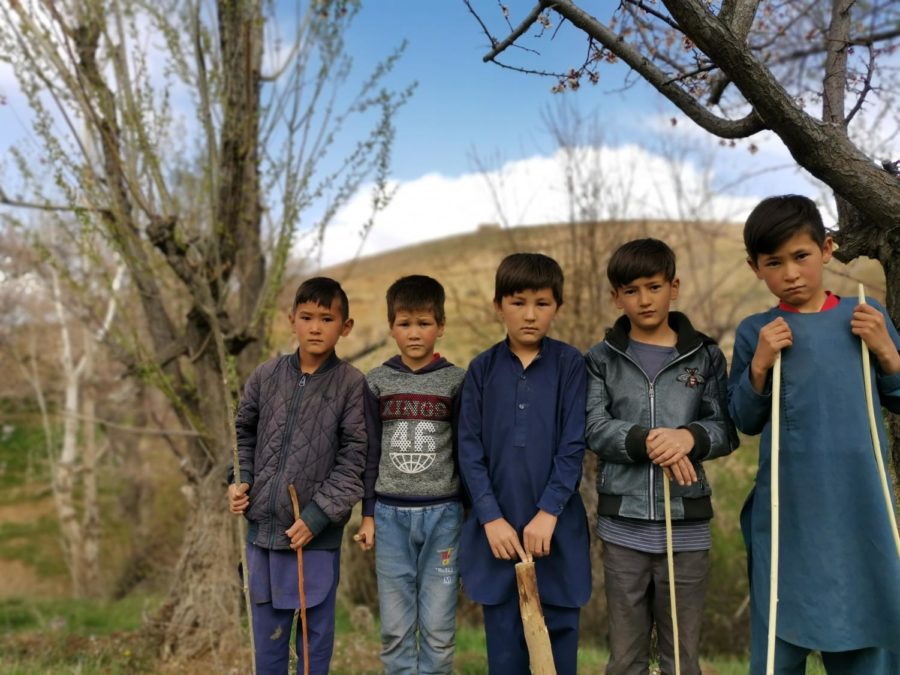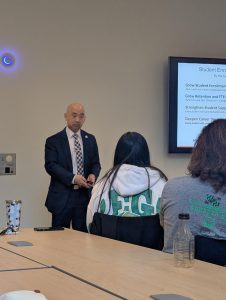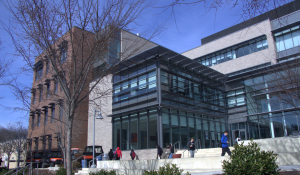Montgomery College Professor Urges Release of Funds to Afghanistan
Professor Shah Mehrabi, an economics professor at MC and a board member of the Afghanistan central bank, discusses releasing funds as part of the solution for Afghanistan
October 29, 2021
On August 15, 2021, the capital of Afghanistan, Kabul, fell under the control of the Taliban, a fundamentalist political group and military organization that controlled most of Afghanistan during the late 1990s until they were overthrown in 2001 by American-led forces. In August 2021, the Taliban regained power. Prior to August 15, 2021, the Taliban had taken over most of the provinces in Afghanistan. Due to this political takeover and lack of available resources, Afghanistan is currently on the verge of an economic crisis.
The United States has maintained positioned troops in Afghanistan over the past twenty years, up until August 30, 2021, when it was announced that any remaining military personnel had been evacuated from the country. The official withdrawal and subsequent takeover of the Taliban have come as a shock for many Afghan civilians, who now face a future of uncertainty. With the winter coming and the country on the verge of an economic crisis, Afghans also face the risk of widespread famine.
I spoke with Professor Shah Mehrabi, an economics professor at Montgomery College and a board member of the Afghanistan central bank, to discuss his thoughts on what can be done in order to help prevent an economic crisis.
Professor Mehrabi stressed the importance of releasing funds from the central bank of Afghanistan (Da Afghanistan Bank – DAB). “The Taliban can benefit from opium production and selling American weapons that they have gained, but the Afghan civilians are the ones who are going to suffer without access to those funds.” Those funds, he pointed out, “do not belong to the Taliban, they actually belong to the Afghan civilians.”
Most of the funds are not physically held in the central bank in Afghanistan. A large portion of the funds is held in the United States Federal Reserve.
Afghanistan is a country that relies heavily on imports, and as a result of the 20-year war, its economy is dependent on foreign currency. Without access to the resources in the central bank and high inflation rates, many Afghan civilians will be forced to go without basic needs such as food and clean water.
Professor Mehrabi mentioned that “so far, the United States has been very reluctant to give humanitarian aid to Afghanistan; they do not want humanitarian aid for the Afghan civilians to be tied to giving recognition to the Taliban government.”
“Giving humanitarian aid does not mean that the United States is recognizing the Taliban as the new government for Afghanistan,” Professor Mehrabi said when discussing this topic. The distinction is important to make in order to point out that help for the Afghan people is not the same as recognition of the Taliban. “Giving humanitarian aid is great, but it should not be the only solution,” Professor Mehrabi also pointed out. In order to sustain the economy, funds must be released from the central bank.
According to Professor Mehrabi, the Taliban is only allowing $200 weekly withdrawals, forcing many Afghans to wait in long lines for hours at banks in order to withdraw their money. Due to inflation rates and the local currency losing its value, $200 is not enough to sustain one person for a week, let alone an entire family. Without sufficient funds to buy basic necessities, families are forced to sell their household items. However, this act yields very little success, as potential buyers are scarce due to the widespread effects of the situation in Afghanistan.
One of the solutions Professor Mehrabi suggested was, “releasing the funds in the central bank.” In dire circumstances such as these, an impartial, unbiased person can be appointed in order to oversee what happens with those funds once they are released, which is a factor that Professor Mehrabi believes is important to point out.
Professor Mehrabi said it best when he stated, “the Afghan civilians deserve to have access to their money and resources, and they deserve to be able to live their lives.”
As previously reported on WBAL-TV, Maryland plans to resettle 1,348 Afghan refugees, many of whom are here under Special Immigrant Visas. The 1,348 Afghan refugees are from the first group of refugees looking to resettle in the United States, but many more refugees will continue to resettle here. There are 26 international students from Afghanistan currently enrolled at Montgomery College across all three campuses as well. Many Afghan refugees have requested to be placed in areas where family members or close friends live, which for so many of them includes Maryland and Northern Virginia.
If you want to get involved and donate or volunteer to help Afghan refugees, these are some organizations and charities to help you do so:
- https://irusa.org/
- https://www.icrc.org/en
- https://www.rescue.org/
- https://www.womenforwomen.org/?promo_redirect=no
- https://www.savethechildren.org/us/where-we-work/afghanistan
- https://rcusa.org/afghanistan/
- https://www.talentbeyondboundaries.org/
- https://www.vitalvoices.org/
- https://enabledchildren.org/
- https://www.homesnotborders.org/
- https://www.iwmf.org/
- https://www.globalfundforwomen.org/












